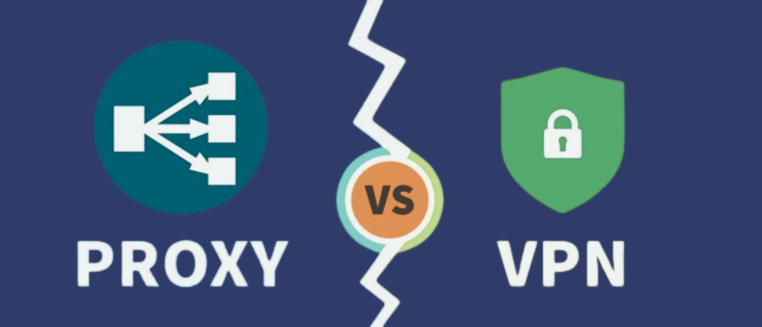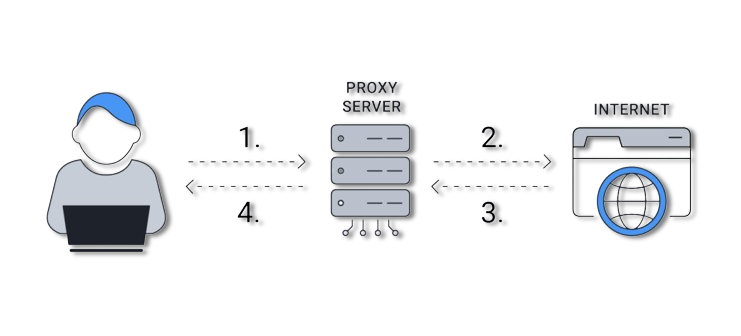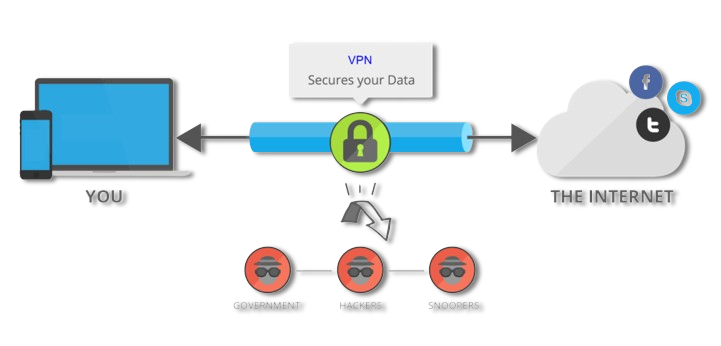Proxy vs VPN: Unveiling the Key Distinctions You Need to Know
Proxy vs VPN: Unveiling the Key Distinctions You Need to Know.

In a world that is predominantly full of technology and internet connectivity, privacy and security issues are significant. So while forging through the Immense sea of the internet, software like proxies and VPNs (Virtual Private Networks) come in handy with these issues. But with both offering seemingly similar functionalities, the question arises: In what ways does one distinguish a proxy from a VPN? So, the topic of the present article will be devoted to comparing proxies and VPNs and choosing the best one for you.
The Masking Act: Another mechanism of cooperation that has been noted as existing between the internet and computer science is a shared objective.
In a nutshell, proxies and VPNs work in almost similar manner and that is to provide a middleman layer between your device and the internet. They work by hiding the IP address – the unique number that your internet service provider (ISP) allocates to your device. They said that this masking offers a certain level of concealment, giving one the impression that the originating point of their internet connection is not actually where it is.
Proxies: The Streamlined Gatekeepers
A proxy server can be defined as a technology that provides a single entry point and exit point for one's connection to the internet. When you connect to a website through a proxy, you send your request to the proxy servers. The proxy server in this case transmits the request to the website on your behalf and waits to receive the response before forwarding it to you. The only IP address the website will see is the IP address of the proxy server you use and not your own.
There are several types of proxies, each catering to specific needs:
HTTP Proxy: It is mainly designed for Internet use, mostly web browsing. It facilitates only HTTP, which is the protocol used in communicating on the World Wide Web.
HTTPS Proxy: Support the encrypted Web traffic that uses HTTPS protocol.
SOCKS Proxy: Considered more flexible, can work with numerous protocols in addition to HTTP and HTTPS.
Advantages of Proxies:
Simple Setup: Most of them are web-based and hence are easy to set up, no need to have high technical skills to set up.
Speed: As for the encryptions, they are not ever used which makes proxies to be faster than even VPNs.
Cost-Effectiveness: There are many proxy services that offer free proxies to everyone while some of the paid proxies are a lot more reliable.
Disadvantages of Proxies:
Limited Security: Proxies also do not encipher your data, and thus your data can be intercepted on the connector involving your device and the proxy server.
Privacy Concerns: Free proxy services are not completely safe to use since they can potentially keep a record of your activity, or insert additional advertisements into your browser.
Selective Anonymity: Hiding the IP from websites is possible but the IP is still revealed to the actual proxy server.
 Unveiling the Power of VPNs: Secure Channel for Higher Security
Unveiling the Power of VPNs: Secure Channel for Higher Security
A VPN invokes the creation of a safe encrypted link between your device and a distant VPN server. All your internet traffic passes through this tunnel, meaning people sniffing around your network will not be able to detect it. The VPN server then allocates a new IP address thus hiding your location and boosting your security when online.
Advantages of VPNs:
Unmatched Security: VPNs add encryption to all your internet traffic so your data will not be exposed to hackers on free Wi-Fi or any other insecure connection.
Enhanced Privacy: Compared to when you are online without a VPN, VPNs offer much better anonymity since they hide the IP address and location, increasing the difficulty of tracking programs to monitor your actions.
Geo-Restrictions Bypass: VPN connects you to the selected servers in other geographical areas, which means that it may be useful to provide access to some sites or services that are restricted in the user’s geographical area.
Disadvantages of VPNs:
Potential Speed Impact: Encryption and decryption may take a few moments and that’s why they can influence the Internet speed.
Cost: However, there are free VPNs available; still, the efficient and secure VPN mostly comes with a paid subscription.
Legality: Maybe it is unlawful to work with a VPN to view geo-restricted material that breaches copyright laws in some places.

Choosing the Right Tool: Meeting Requirements with Use
Therefore, choosing between a proxy and a VPN depends on the program’s specific features or goals. Consider the following factors:
Security: For a viable option, where strong data encryption is the key, a VPN seems to come out on top. Proxies do not have much to no encryption at all; therefore, your data is easily vulnerable.
Privacy: When it comes to hiding your identity to the maximum online, then a VPN is preferable. It hides your IP address, as well as enciphers your traffic, thus making it difficult to trace you on the internet.
Speed: If an uncompromised connectivity speed is mandatory then a proxy may be desirable. However, speed variations depend on the corresponding proxy service that a user chooses.
Cost: Some of them offer their services for free, but you must be careful when dealing with proxies and your privacy and security. Generally, good VPNs are used by purchasing a subscription for that service.
Functionality: If all you need is to work your way around specific websites proxy might be enough for you. But if one wants to get round-the-clock protection while using the Internet, a VPN is more suitable.
Scenarios Where a Proxy Might Be Suitable:
Basic Web Browsing: In areas where security is not an issue or the only web goal is access where geographical restrictions have been implemented a proxy can provide a fast way of possibly, accessing such websites.
Price Sensitivity: In case of budget as a constraint, you can use free proxy services, albeit, you must know the issues relating to privacy.
Scenarios Where VPN Shines:
Online Privacy: A VPN is always at its best protecting your activity on the internet from people who may want to spy. It hides your IP address and encodes your connection, which means websites, advertisers, or your very ISP cannot follow your surfing activity. This is especially important in case you perform some operations on the Internet and type in your credit card numbers, or your prescription details.
Geo-Restriction Circumvention: VPNs enable one to connect to servers in other countries giving a chance to get content and services that can be prohibited at the place of user’s location. This can be helpful for travelers who use their streaming platforms from foreign countries or people who look for information that is blocked in their internet connection.
Business Security: For companies with a remote working model or when working with confidential information, a VPN is mandatory. It maintains secure communication between employees and company servers and does not let any unauthorized person get access to any sensitive information even if communication is done over a public network such as a Wi-Fi network.
Torrenting: If you transfer files using the P2P technique, a VPN protects your identity. It shields your IP address from other users on the network thereby possibly avoiding the lawyers if it is an area that has very tight laws on copyrights. Nevertheless, it is vital to point out that downloading copyrighted material remains unlawful even with the help of a VPN.
Gaming: To the online gamers out there, VPN has the following benefits in their gaming experience. It can enable uncapped connection to game servers since you can play games that are not available in the region you live in. Separately, a VPN can help decrease or even boost your connection speed because your traffic is rerouted via a less busy server.
Journalism and Activism: In countries where there is a restriction on the kind of information that people can access over the internet, journalists for instance, or activists will benefit from VPN since they can camouflage their identities to get that which the government feels is not good for the public to see. This is because, through the anonymity that comes with the VPN, they are in a position to exercise their work safely without any form of repression.
Conclusion:
Thus, VPN proves to be one of the most reliable and efficient tools for security and confidentiality when performing different activities on the Internet. VPN offers such security features as accessing connections to public handlers, avoiding geographical limitations, and protecting important information.

